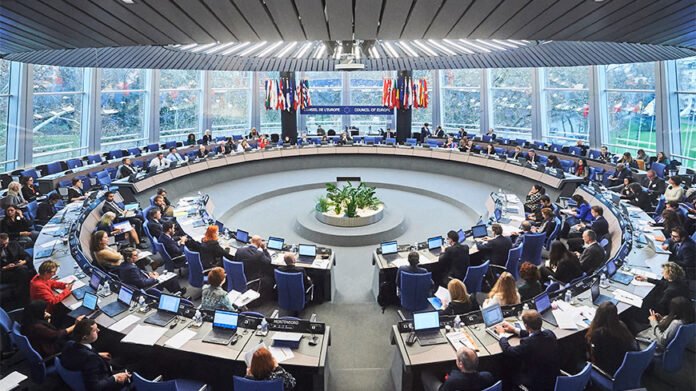The Council of Europe’s (CoE) Committee of Ministers, during its quarterly meeting held September 15–17, renewed its call for the immediate release by Turkey of Selahattin Demirtaş, the imprisoned former leader of the pro-Kurdish Peoples’ Democratic Party (HDP), and Osman Kavala, a prominent philanthropist and rights advocate.
The committee underscored the binding judgments of the European Court of Human Rights (ECtHR) in both cases, reiterating that the detentions lack legal justification and serve politically motivated purposes. It emphasized that Turkey’s continued refusal to implement these rulings constitutes a serious breach of its obligations under the European Convention on Human Rights.
In Demirtaş’s case, the committee said his prolonged detention was intended to suppress political pluralism and curtail democratic debate, particularly in the lead-up to elections. It urged Turkish authorities to take concrete steps to strengthen freedom of expression and political participation, including training for prosecutors and judges to ensure complaints from elected representatives are properly assessed.
Regarding Kavala, the committee expressed grave concern over his continued imprisonment, stating that it aims to silence dissent and intimidate other human rights defenders. It reaffirmed that Turkey remains in flagrant violation of the rule of law until Kavala is released and the ECtHR judgment is fully executed.
Demirtaş was arrested on November 4, 2016 on charges including “dissemination of terrorist propaganda” and alleged links to the outlawed Kurdistan Workers’ Party (PKK). In May 2024 Demirtaş was sentenced to 42 years in prison for allegedly undermining state unity during the Kobani protests, which erupted across Turkey, on October 6-8, 2014, when the Islamic State in Iraq and the Levant (ISIL) laid siege to the Syrian Kurdish town of Kobani. Particularly intense in the predominantly Kurdish southeastern provinces, the protests resulted in 37 deaths.
Kavala was arrested in October 2017 and sentenced to life in 2022 for allegedly trying to topple the government of President Recep Tayyip Erdoğan. His conviction was upheld by the Supreme Court of Appeals in September 2023.
In response to Ankara’s persistent refusal to comply with the Kavala ruling, the CoE launched rare infringement proceedings in February 2022, only the second time in the body’s history.
The Parliamentary Assembly of the Council of Europe (PACE) also adopted a resolution on April 9 urging Turkey to fulfill its obligations under the European Convention on Human Rights by implementing key judgments of the ECtHR. International observers say the Turkish judicial system has suffered “irreversible damage” during the more than two-decade-long tenure of the Justice and Development Party (AKP), eroding public confidence in the rule of law.
Turkey was ranked 117th among 142 countries in the World Justice Project’s 2024 Index.















